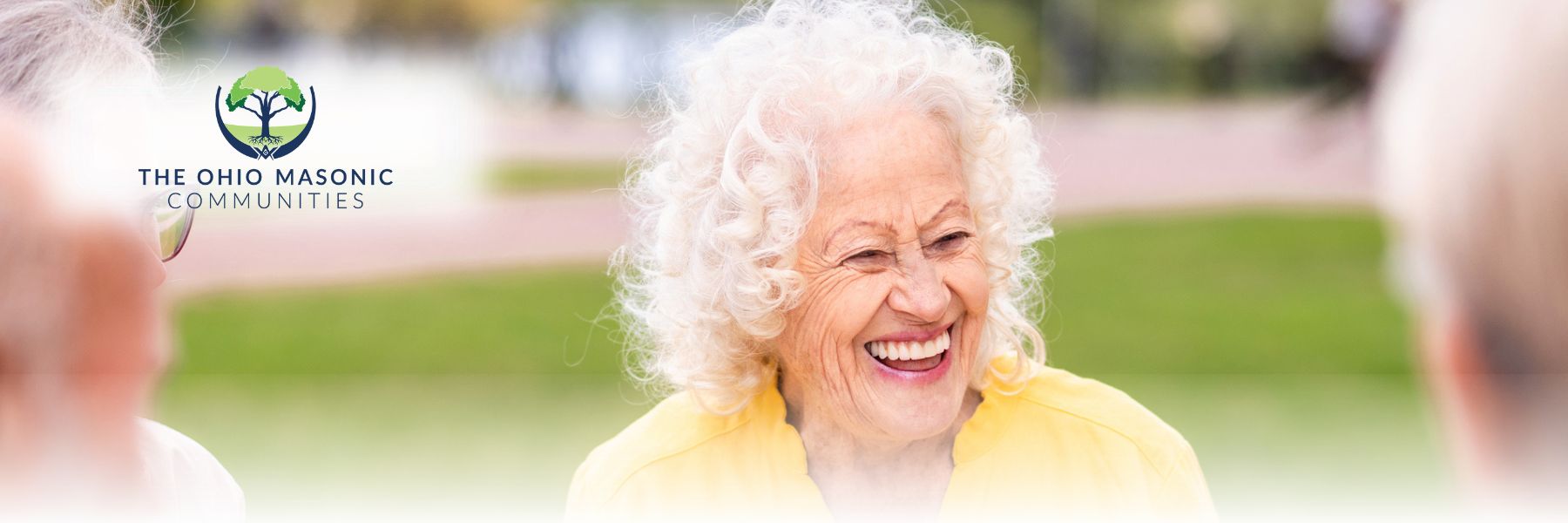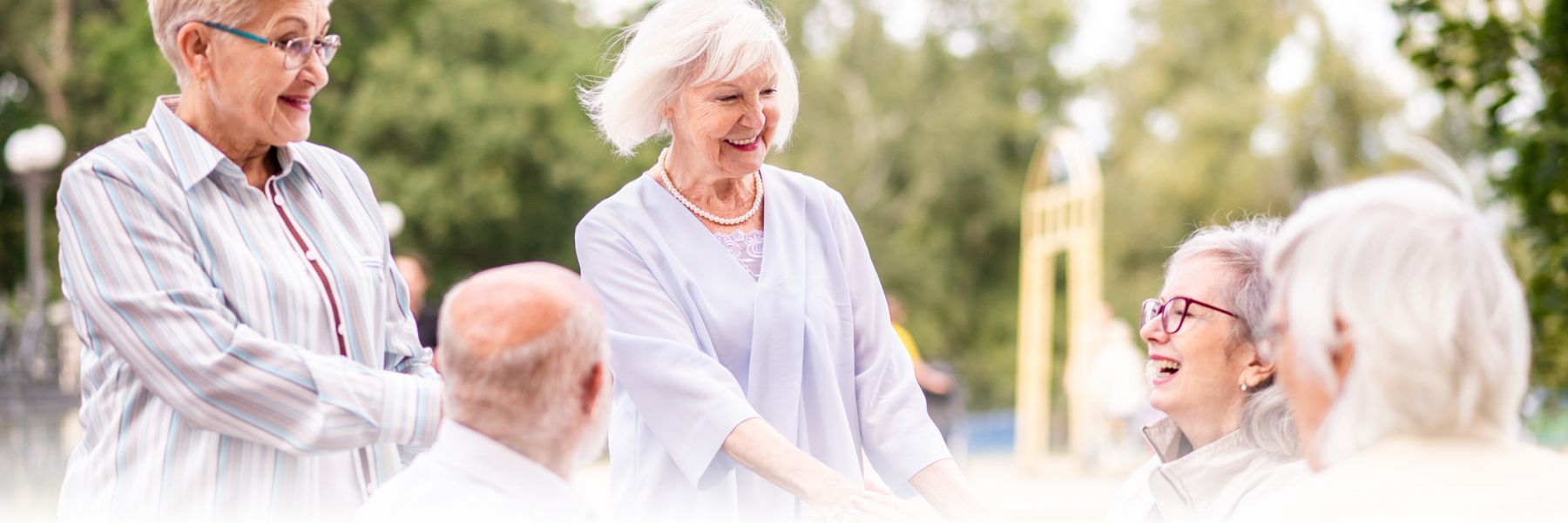
Social Bonds Enrich Our Lives
No one wants to think about the years when the country dealt with Covid. If there is one thing that everyone learned it’s the need for socialization. People aren’t meant to live in a vacuum. Nearly three in ten older adults live alone. While maintaining your independence is important, it’s also critical to recognize the benefits of socializing and the negative effects neglecting the social aspect of life can have.
People are inherently social. According to Dr. Craig Sawchuk, Ph.D., a Mayo Clinic psychologist, “We are social animals by nature, so we tend to function better when we’re in community settings, while being around others.” Older adults are more likely to isolate or experience loneliness than the rest of the population. A study found that 43% of older adults regularly experience loneliness.
Isolation and Aging Adults
The National Council on Aging states that social isolation and loneliness negatively affects the health of older adults and can even increase the risk of mortality by 50%. This can increase the impacts of obesity and alcohol abuse. Isolation affects nearly every aspect of their lives. On top of the effects on mood and mental health, isolation often leads to physical deterioration. Lonely and isolated older adults show higher rates of poor physical and mental health. Other risk factors include:
- High blood pressure
- Heart disease
- Cardiac failure
- Depression
- Anxiety
- Cognitive decline
- Alzheimer’s and other forms of dementia
- Weakened immune system
Social isolation and loneliness in older adults has also been associated with unhealthy behaviors like physical inactivity and smoking.

Risk Factors to Look Out For
As we age, it’s important to remember that we’re not alone. However, some factors can increase the risk of isolation in seniors. These include:
- Being over the age of 80. As we age, our health can decline, and we may lose loved ones. This can lead to feelings of loneliness and isolation.
- Chronic health conditions. Chronic health conditions can make it difficult to get out and socialize, which can lead to isolation.
- Limited contact with friends and family. If you don’t have regular contact with friends and family, you’re more likely to feel isolated.
- Lack of resources. If you don’t have access to transportation or other resources, it can be difficult to stay connected with others
- Depression. Depression can have a serious impact on older adults with ongoing medical conditions. Depression has been shown to worsen disability, increase the severity of chronic illness, raise mortality rates, and cause suffering for older adults and their families.
Obstacles Aging Adults Face
As people age there is a natural tendency to get less active. Older adults can settle into inactive routines and grow increasingly sedentary. For many, it’s easier to watch TV alone than to go out with friends or enroll in an exercise program. Older adults need to be proactive about their activity levels, or their health will deteriorate. Healthy relationships are necessary at every age, but these relationships and socialization are even more important for older adults. To prevent these consequences, it’s important to understand the obstacles seniors face when it comes to socialization.
The most reported difficulties seniors face when combatting social isolation include:
- Physical ailments
- Loss of a spouse or other loved one
- Isolation and/or mobility problems
- Real or perceived cognitive decline
- Less availability of family members to assist with social activities
Older adults and their families face various challenges. It’s important to work to reduce these obstacles as much as possible. Otherwise, it will be more difficult to have a social life that delivers so many benefits. There are always ways to intervene, no matter how far the problem has progressed.

Staying Connected for a Healthier Life
Socialization has been shown to be one of the most effective ways for older adults to improve their mental health. Socialization improves mood, cognition, memory recall, and is associated with healthy behaviors, including exercise. Connecting with family and friends through technology, exercise, games, and other activities has a significant effect on the mental health.
Benefits of socialization for older adults include:
- Longer lifespan–Those with high levels of socialization can live longer.
- Reduced stress–Older adults who are socially active tend to handle stress better, which can result in better cardiovascular health and an improved immune system.
- Better fitness–Older adults with a social support system are more likely to exercise regularly.
- Reduced risk of anxiety and depression–Socialization reduces the likelihood of experiencing the anxiety and depression caused by isolation.
- Greater self-esteem–Socialization helps older adults maintain their self-esteem and sense of worth.
Building Social Bonds
There are many ways for older adults to get the socialization they need. Some ideas include:
- Build and maintain positive relationships with grandchildren.
- Do volunteer work.
- Take advantage of community resources such as senior centers and religious organizations.
- Move to a retirement community. Many offer one-bedroom apartments at reasonable rates that still provide access to full schedules of activities and socialization opportunities.
- Organize social activities on your own and include friends and neighbors who might be experiencing isolation or loneliness.
- Help maintain a sense of purpose by caring for a pet, attending church, or enjoying hobbies.

Senior Living Communities and Socialization
Finding a community that provides a variety of social activities and amenities for its residents can help you lead a full, happy life as you age. Senior living communities offer older adults the emotional, physical, and social activities they need to remain healthy.
Common examples of social activities in senior living communities include:
- Shopping outings arranged by staff
- Game nights
- Movie nights
- Meals together with neighbors
- Neighborhood hikes
- Exercise classes
- Happy hours
- Extended learning opportunities
Best of all, senior living communities, such as The Ohio Masonic Communities offer everyone peace of mind. Older adults can benefit from the active social life they enjoy while family and friends know their loved ones have a safe, happy environment to call home.
Wanting to learn more great ways to help build social bonds and prevent isolation among your aging loved one/s? The Ohio Masonic Communities is your go to resource. With three locations in Springfield, Waterville, and Medina, OH, their senior living communities offer 24/7 care and support for independent living, assisted living, and memory care. If you and your loved one are interested in senior living, schedule a tour at one of the scenic and beautiful communities. Call (877) 881-1623 today to learn more about their great senior living options.